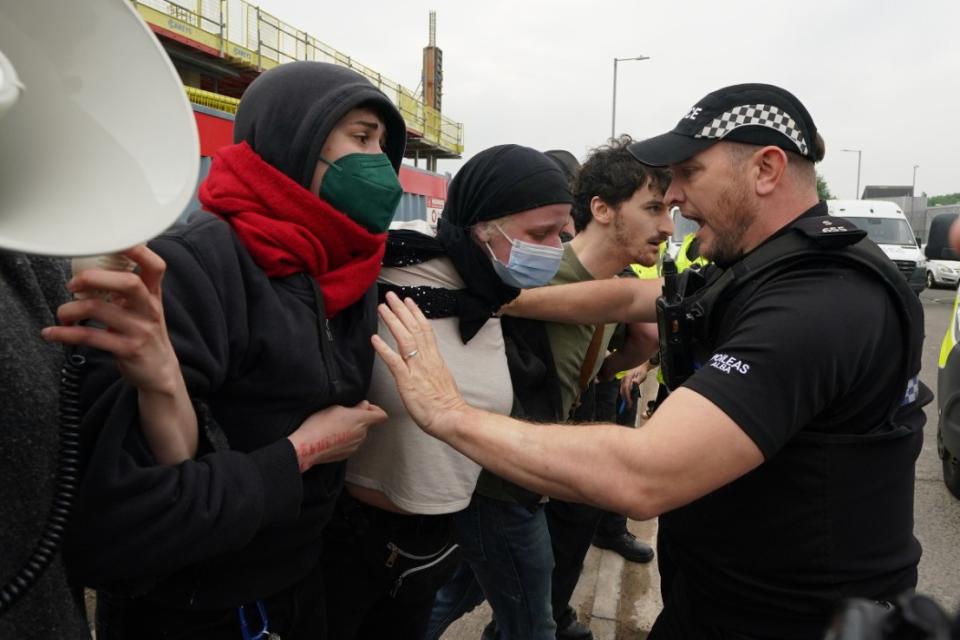‘Blanket ban’ on face coverings at protests, political violence adviser recommends

The government should introduce a blanket ban on face coverings at protests, an adviser on political violence has recommended.
Former Labour MP John Woodcock, now crossbench peer Lord Walney, was asked to produce a review into political violence and disruption for the Home Office.
His 294-page report made 41 recommendations including the “blanket ban on face coverings” which would expand the current law making it an “arrestable offence to refuse to comply with a police officer’s instruction to remove a face covering”.
He warned that a “significant amount” of protest behaviour can be extremely intimidating for the public due to the “widespread use of face coverings” and use of flares and firecrackers.
Face coverings make “it difficult to identify those committing offences, including those with antisemitic signs or showing support for proscribed terror groups such as Hamas,” he added.
Ministers he said, “should amend regulations related to the Public Order Act 1986 to allow police to impose a blanket ban on face coverings as a condition of a protest going ahead”.
Lord Walney also called for sweeping measures to crack down on protests, including making organisers pay towards policing and a review of undercover surveillance of activist groups.
His recommendations for changes to “protect our democratic values from intimidation”, also included making it easier for businesses or individuals to claim damages from activist groups that cause disruption; and for protest buffer zones around MPs’ constituency offices and local council chambers, in the same way that some abortion clinics will be protected.
The peer backs measures to restrict the ability of some groups to organise and fundraise if they are considered to have a policy of using criminal offences that would lead to a prison term, for example destroying property or causing serious disruption or injury.
His review came as communities secretary Michael Gove spoke at a Jewish community centre in North London where he warned that rising antisemitism threatened to cause a “profound breach in the West’s collective defence”.
Gove urged the organisers of pro-Palestine protests to “reflect on what those marches have enabled”, as he suggested they had failed to deal with antisemitic demonstrators.
Reports of antisemitic incidents reached a record high last year, according to Jewish charity the Community Security Trust (CST), with two-thirds in the three months after October 7.
In response to the report, home secretary James Cleverly wrote: “It is unacceptable that extreme activists can hijack legitimate protests to cause intimidation, disruption and violence.
“We have too often seen vile displays of antisemitism on our streets and aggressive disruption on the part of some protestors… the government will look at the thresholds for imposing conditions on protests, and how such thresholds could be applied, in line with your recommendations.”
The peer faced criticism before the publication of the report because his interests, declared on the House of Lords register, include jobs for companies that also act for energy firms.
He told the Guardian he had maintained an objective standard and sought a wide range of views while writing the report.
Just Stop Oil said it did not recognise the legitimacy of the report because of the links, while Extinction Rebellion called it “shameful” that he had been asked to write the report.
An XR spokesman said: “We are a movement committed to non-violence. We train everyone acting in the name of Extinction Rebellion in non-violence.
“We have stewards to manage crowds responsibly. We have a policy for how to clear an area for emergency services.”

 Yahoo Finance
Yahoo Finance 